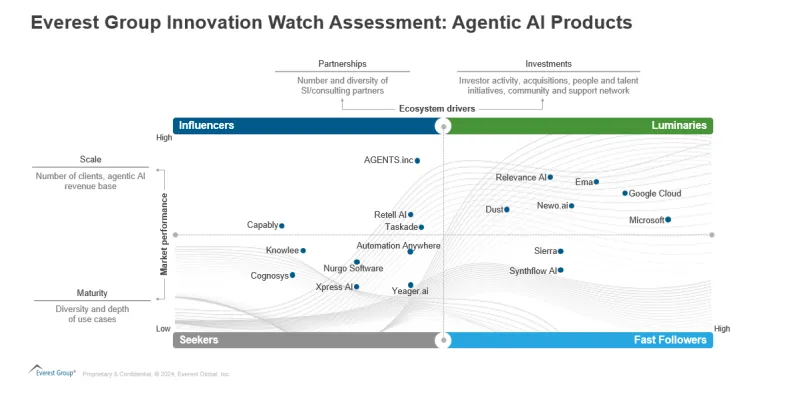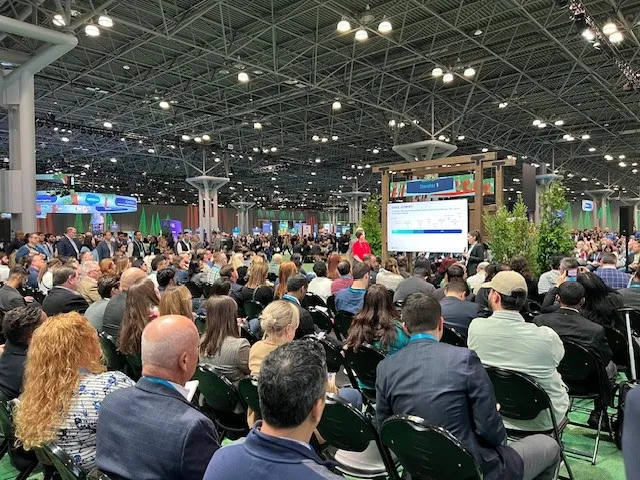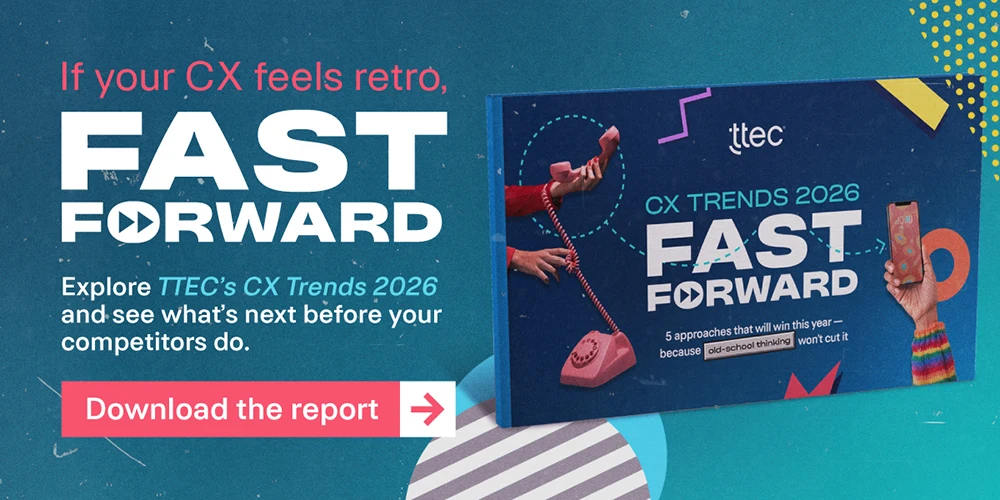Of the 5 CX trends highlighted by TTEC in its CX trends report, the emergence of autonomous AI agents signals what could be the biggest innovation in the customer experience space in the next year.
“This is the year of generative. Next year is the year of agents,” said Jeremy Schowalter of Salesforce.com at a recent event centered around the technology. He echoed predictions from Gartner, Forrester, Everest, and other researchers banking on “agentic AI” as a significant milestone in the AI evolution.
Agentic AI is designed to conduct more complex actions than machine learning or generative AI, with minimal human supervision. Given the right data, it knows your business, plans and reasons, takes action, and scales for deep personalization. Gartner predicts that by 2028, 33% of enterprise software applications will include agentic AI, compared to less than 1% in 2024, enabling 15% of day-to-day work decisions to be made autonomously.
Early adoption is found most in sales and marketing, customer support, and HR functions, according to Everest Group. Many tech companies are vying for dominance in developing AI agent platforms. Not surprisingly, hyperscalers like Google and Microsoft have taken an early lead, but the field is growing rapidly (see Everest’s map and analysis).

Say hi to Sophie from Saks
What exactly do AI agents do? Let’s review examples from the recent Salesforce conference I attended:
In luxury retail, AI agents can recognize photos, understand text, and make customer recommendations that are personal and authentic, said Saks Global CEO Marc Metrick in a video shared at the conference. AI agents can share their insight with human contact center associates or directly with the customer. “Humans with agents drive customer success together,” he added in the video.
Patrick Stokes, executive vice president of product and industries marketing at Salesforce, put the concept to the test with a demo of Saks’ AI assistant Sophie. Through a natural phone conversation, Sophie identified Stokes as the caller, knew he had just purchased a shirt, and listened to his request to exchange it. She recommended a larger size and offered to make the exchange with a specific delivery window to his address. When he declined because of the shipping time, she identified his calling location and suggested a local store to pick up the new item within three hours. He accepted and completed the interaction, all in under one minute.
Of course this was a pre-planned demo, but it illustrated the aspiration of CX leaders to use AI to further simplify interactions and integrate data to solve customer challenges more easily.
Banking bets on AI agents
The technology has implications across nearly all industries. Olivia Boles, assistant vice president of solution architecture at Pentagon Federal (PenFed) Credit Union, presented that she’s working with Salesforce AI agents to nurture marketing launches, provide customer support assistance, and create sales plans. It also helps maintain compliance and prepare for regulatory changes.
“Breathtaking” is how she described the AI technology. “It’s a strange word to use about tech, but that’s where we’re at,” she said.

Olivia Boles of PenFed Credit Union speaks at the recent Agentforce NYC conference
In the tech world, Vivint home security already had award-winning customer support and wanted to see what’s next, said Eddie Prignano, CRM platform director. The company created pilots for some of its most complex product troubleshooting service tasks.
“As a customer, I don’t want to wait on the phone for 20 minutes when an Agentforce agent can do it right away,” he explained of why the company launched its AI agent program. Now, the AI agents connect to Vivint’s Internet of Things (IoT) device data to identify product issues. For example, if a customer calls to say their security camera isn’t working, it can determine which device has an error and refresh it.
The interaction happens in seconds or minutes, rather than a typical human interaction where the associate waits for the customer to find and reboot the device, Prignano said. “We can spend most of our time delivering business value to customers.”
AI agents need data clarity to succeed
For AI agents to reach their potential, they need to connect to multiple data systems. The bots are programmed to move beyond large language models (LLMs) to connect to internal systems including CRM, ERP, inventory, point-of-sale, and others to find information and complete actions using retrieval augmented generation (RAG). In many companies, these systems are “islands of disconnected data,” according to Sanjna Parulekar, Salesforce vice president of product marketing. Some data may not be even digitized, and security issues remain top of mind.
Data accuracy, availability, and secure integration lead to more powerful AI agents completing more complex tasks for your business. Yet many companies still struggle with data — a recent AI survey from S&P Global Market Intelligence and Weka found that the biggest AI infrastructure challenge is data storage and management, well ahead of computing, security, and network challenges. That’s why many experts recommend working with partners to deploy and maintain AI agents, rather than building them from scratch.
What will AI agents look like in 2025?
2025 looks to be another banner year for AI. Will AI agents fulfill their promise to significantly improve the customer experience? Are we truly in another wave of AI evolution, after predictive and generative?
That’s the goal, said Salesforce CTO Parker Harris at the conference. “We all want to get to the world of AI customer success.”















